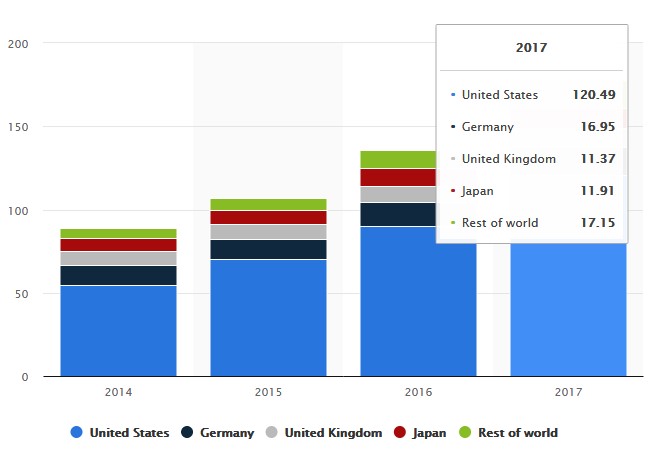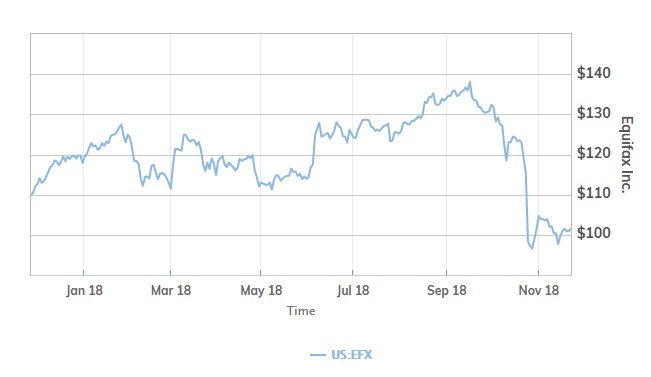Giant online retailer, Amazon, Inc., has been making headlines for all of the wrong reasons.
First was news about a data breach where customer names and passwords were exposed due to what the company termed a “technical error”— that was quickly followed by another one that is becoming a recurring theme for the company: Workers downing their tools over poor working conditions in its fulfillment centers.
But all’s well that ends well, isn’t it? And Black Friday can be very forgiving.
Amazon has just reported record Black Friday sales in the U.K., which, ironically, happens to be the same location where workers in five fulfillment centers reportedly planned to stage a protest over “inhuman working conditions”.
According to eMarketer, signs are emerging that the usual Black Friday shopping frenzy is beginning to subside in the U.S. Luckily for retailers, Europe is picking up the slack with interest in the event growing across most countries on the continent. Notably, consumers in the U.K. and Nordic region have become some of the most avid Black Friday shoppers.
That might seem rather unusual considering that Thanksgiving is not even a holiday in Europe. Sumptuous Black Friday deals have, however, persuaded many people to change their shopping habits and do more of it outside the legally designated summer and winter sales periods. Indeed, as many as 30 percent of internet users in the region plan to make Christmas-related purchases in November.
Given this backdrop, it’s perhaps not surprising that Amazon is recording big Black Friday numbers in the U.K.
As of mid-morning Friday, the company reported that 100,000 toys and 60,000 beauty items had been ordered since midnight. The U.K. is Amazon’s fourth-largest market after the U.S., Germany and Japan, contributing to nearly seven percent of total retail revenue.
What’s a bit of a head scratcher is the reason why the trend is not being replicated across the entire region. But that is because of another British peculiarity: shopping from physical stores during the holiday season simply isn’t as popular in the UK as in Europe. Virtually all European countries tend towards shopping in physical shops as opposed to online.
Related: Illegal Gold Mining Hits Record High In Venezuela
Europe-based brick-and-mortar retailers are expected to make at least 4x as much in Black Friday sales as online stores. That’s the complete antithesis of the situation in the U.K. where only 26 percent of shoppers are expected to buy from physical stores with the rest placing orders on their laptops, PCs and mobile devices as a per PwC. The average U.K shopper is expected to spend £234 ($300) in the four-day holiday season spanning Black Friday through Cyber Monday. That could translate into juicy numbers in a nation of 45 million digital shoppers.

Source: Statista
The UK is not the only Amazon market that’s seeing some big action this holiday season. Adobe Analytics now projects Black Friday online spending of more than $6.4B, a considerable upgrade from the firm’s earlier forecast of $5.9B. Adobe tabulated Black Friday online spending of $64M through 10:00 a.m. ET, a 28 percent Y/Y growth clip.
Amazon took nearly half of all online Black Friday sales last year.
Peanut Gallery?
Questions still linger over the veracity and/or gravity of the two most recent charges against amazon. First off, Amazon has openly refuted claims of the worker protests at its UK fulfillment centers saying:
"Our European Fulfillment Network is fully operational and we continue to focus on delivering for our customers," the company has said in a statement. "Any reports to the contrary are simply wrong."
Related: Stock Sell-Off Accelerates As Bear Market Looms
Maybe it’s the Amazon peanut gallery in overdrive once again. Perhaps that’s precisely why Amazon has released early sales trends for the U.K. market to help dispel investor fears.
On the other hand, this is not the first time allegations of poor working conditions in the company’s fulfillment centers have surfaced.
Amazon has remained uncharacteristically tight-lipped about the data leak, only releasing a rather short and terse statement saying the breach has been fixed:
"We have fixed the issue and informed customers who may have been impacted."
That's it - no more, no less. Data breaches are extremely common in the retail world, though investors will have to cross their fingers and hope it’s nothing on the scale of the Equifax heist that led to a 20-percent capitulation for the stock.

Source: MarketWatch
By Alex Kimani for Safehaven.com
More Top Reads From Safehaven.com:
















